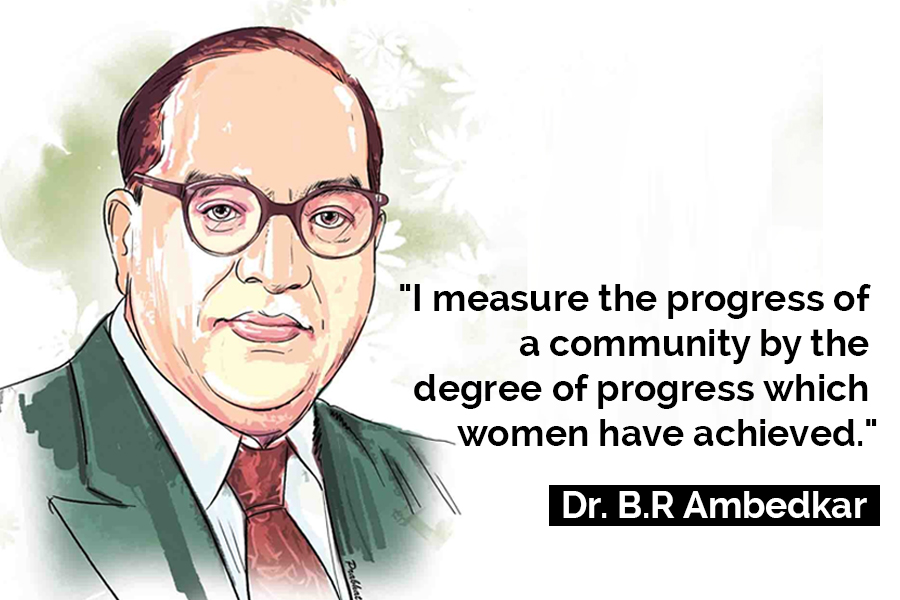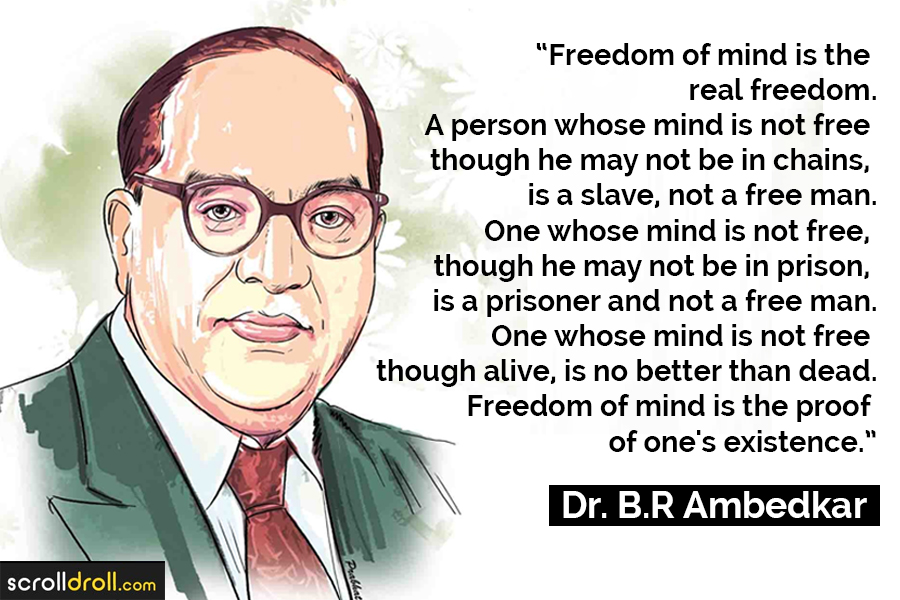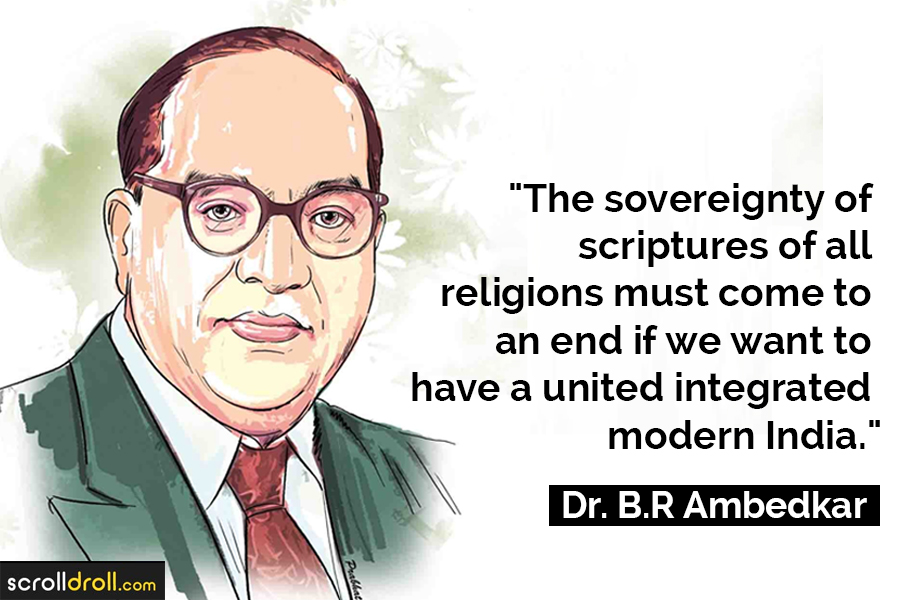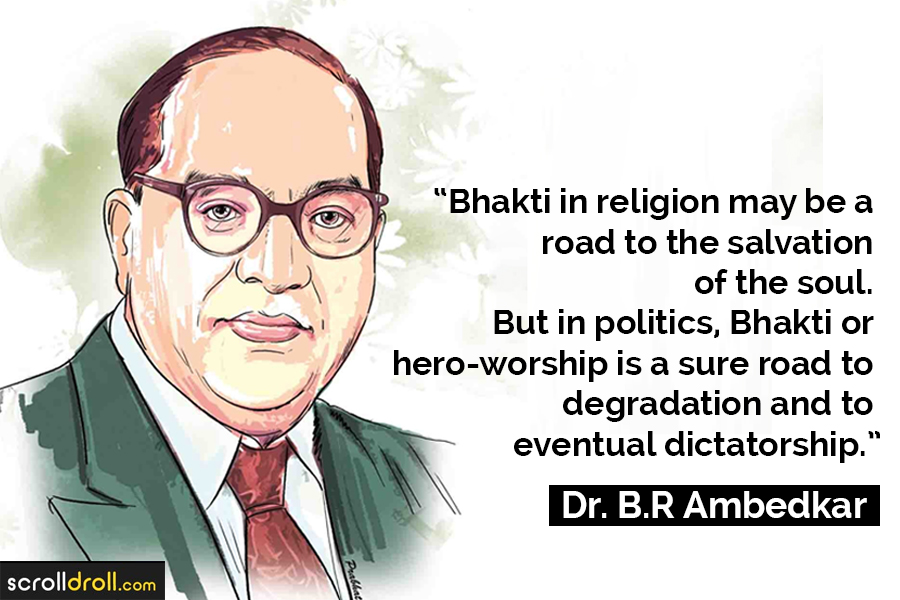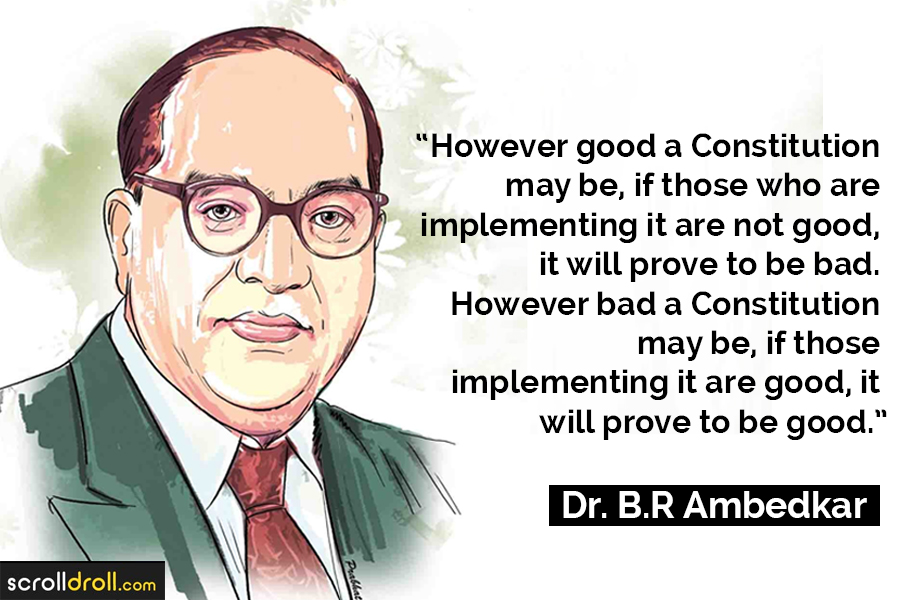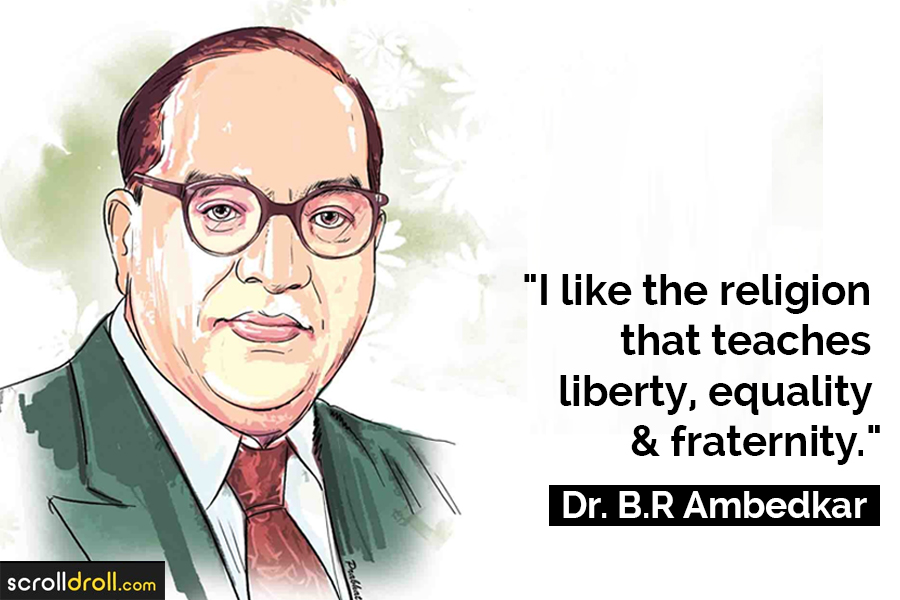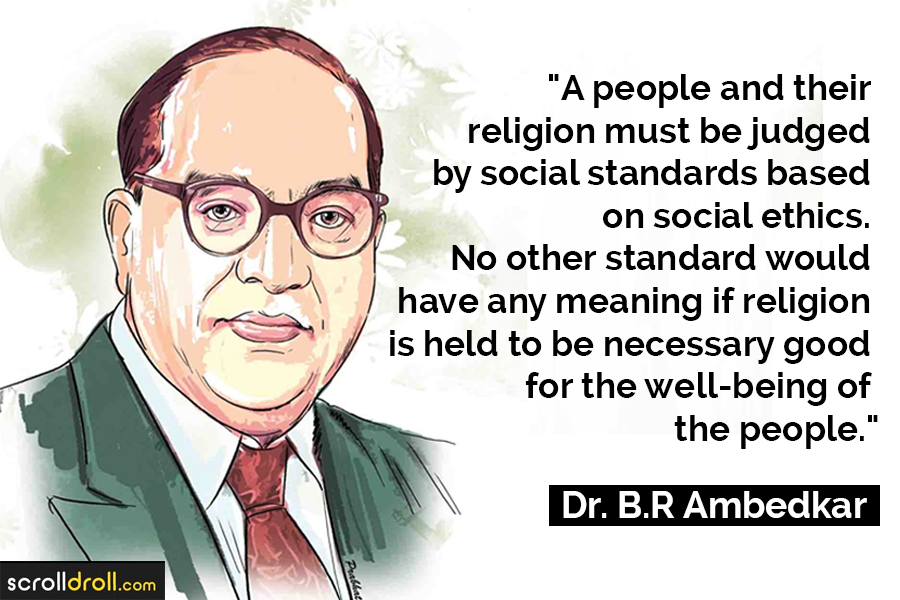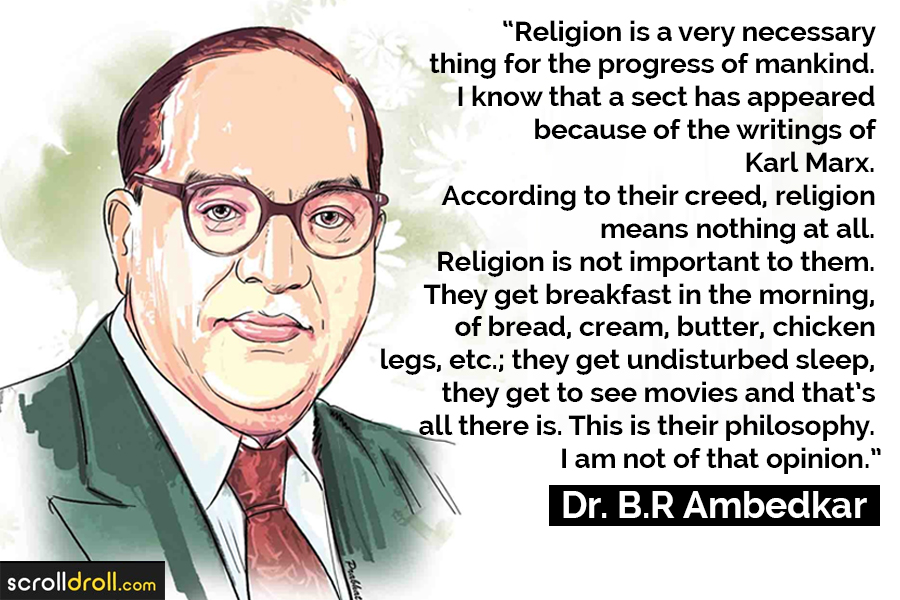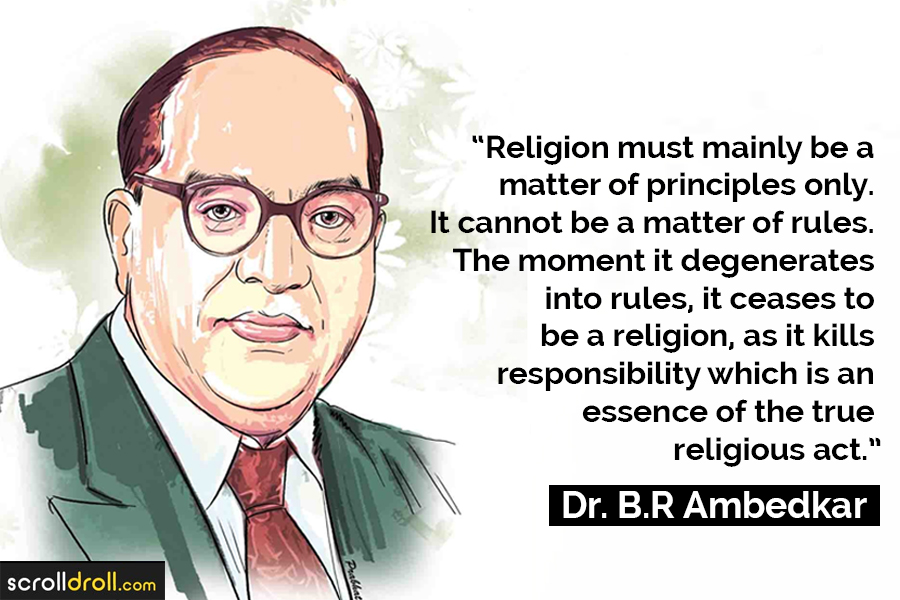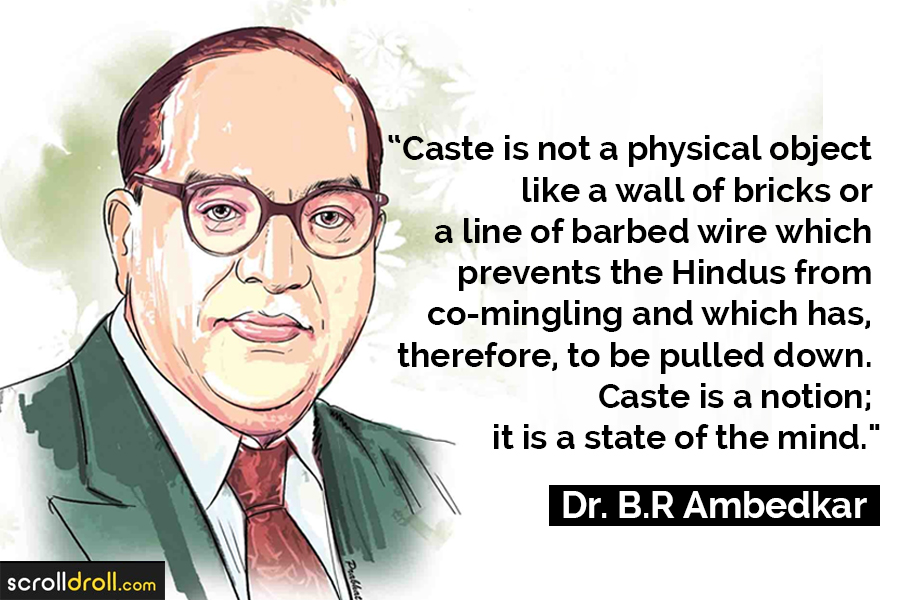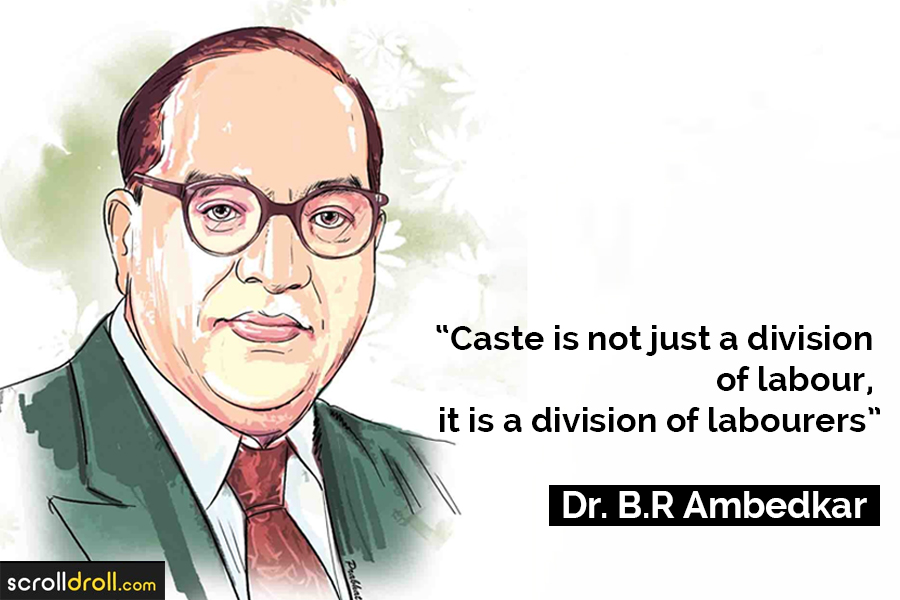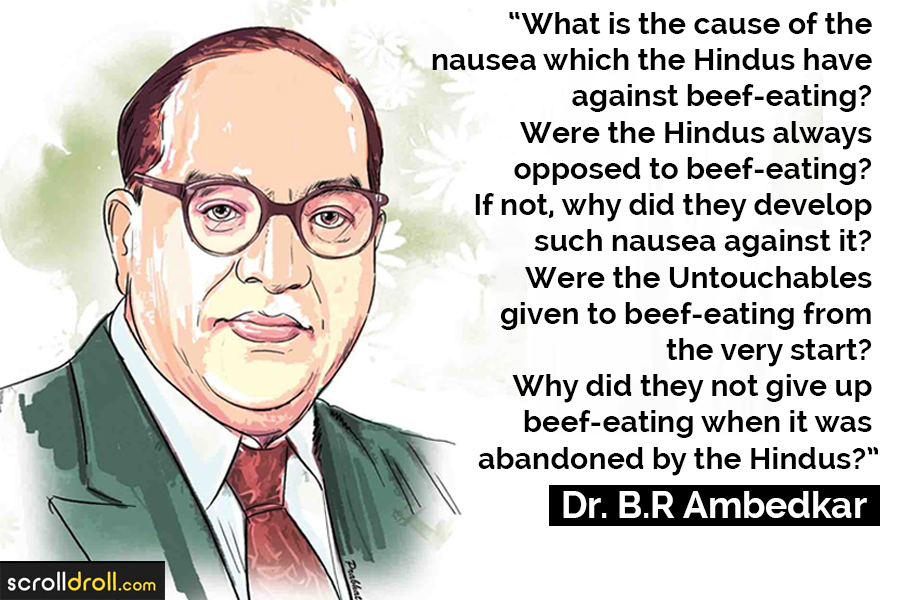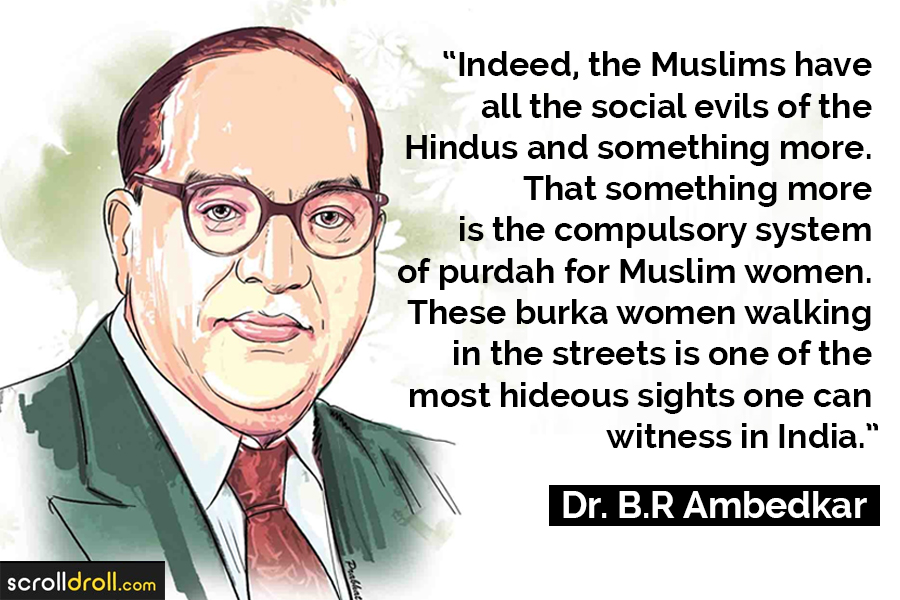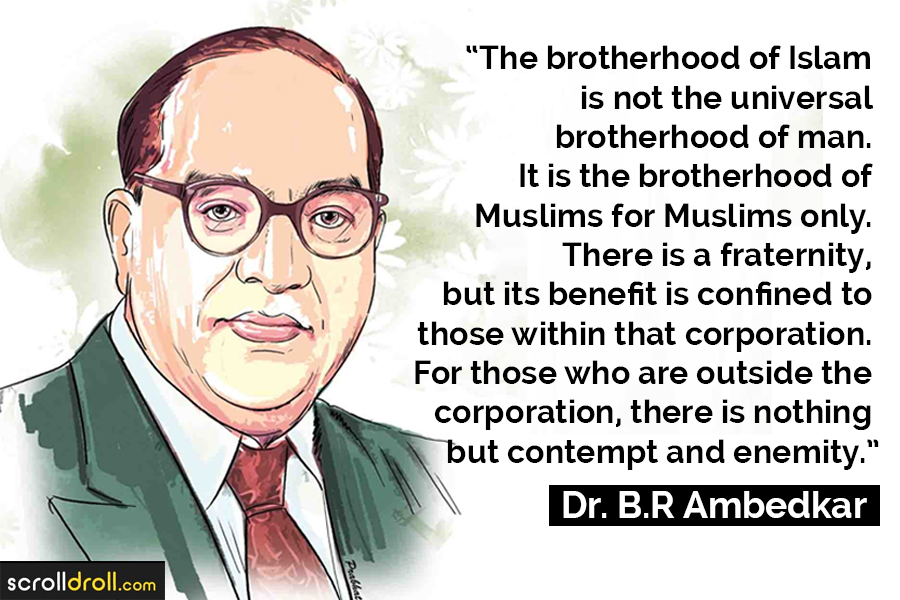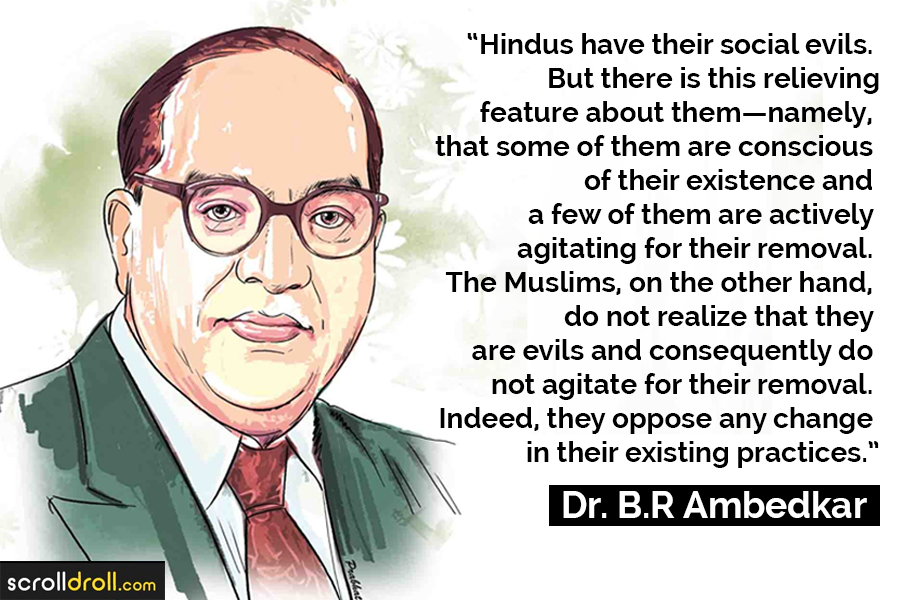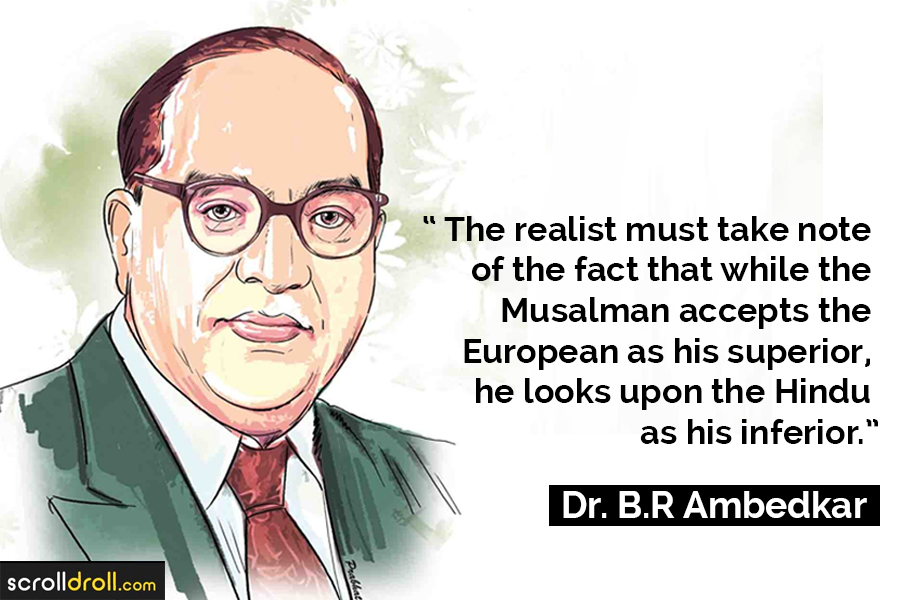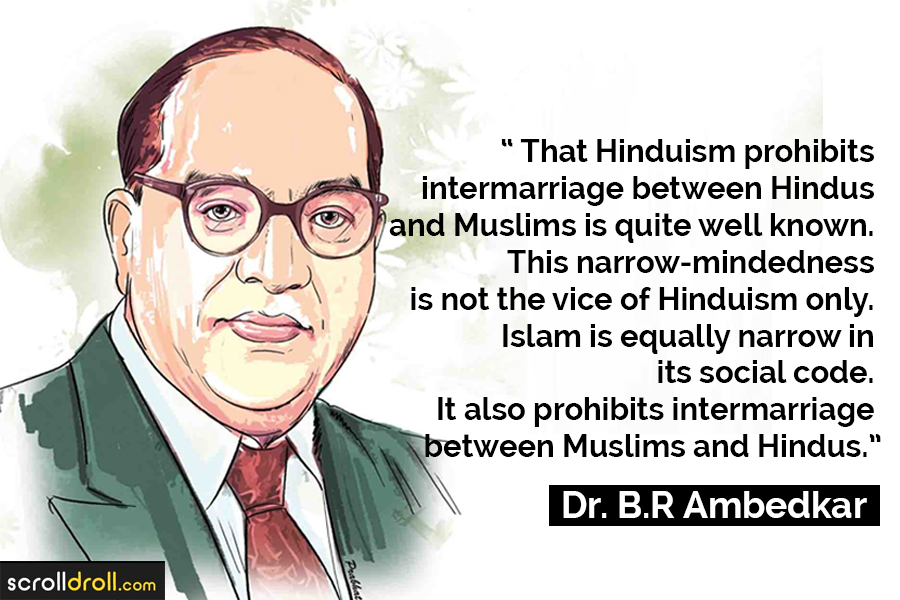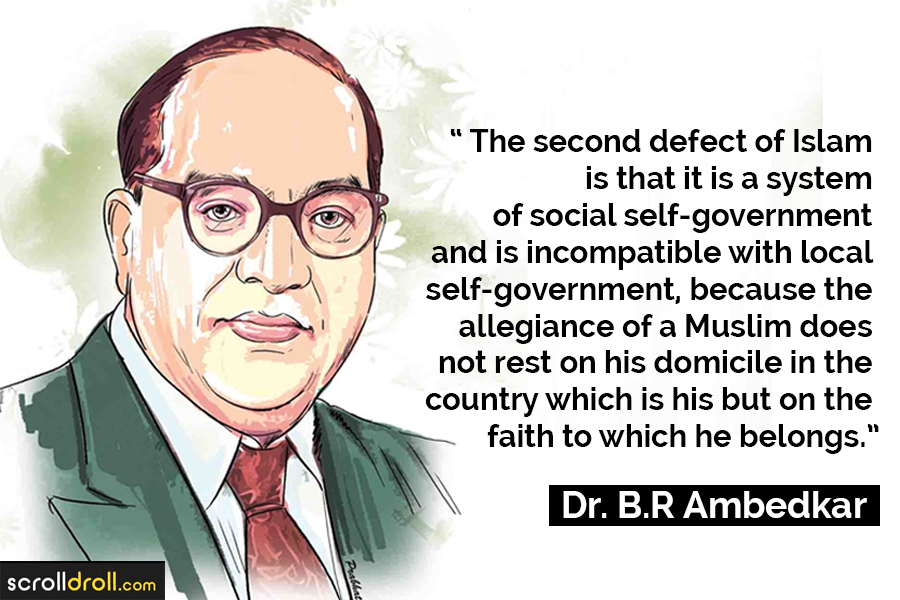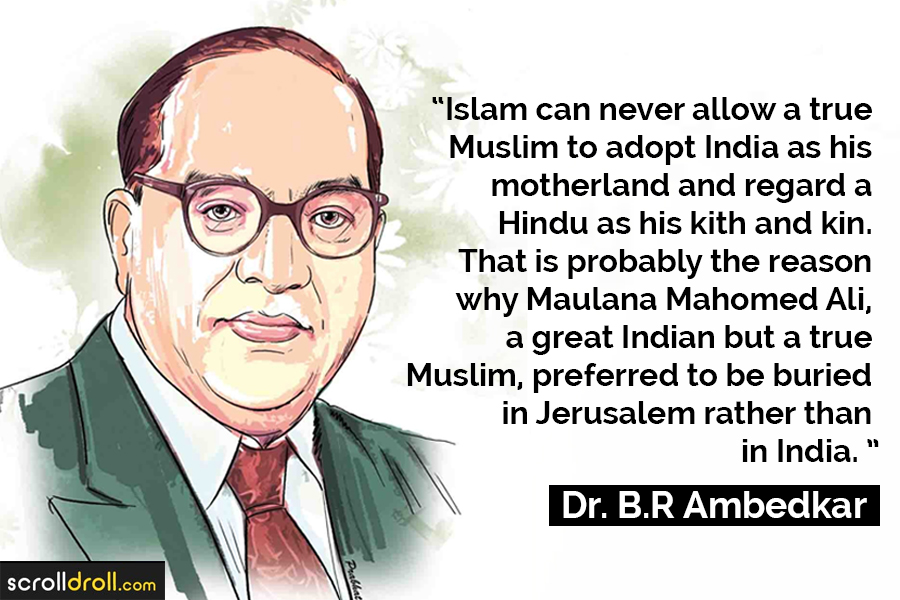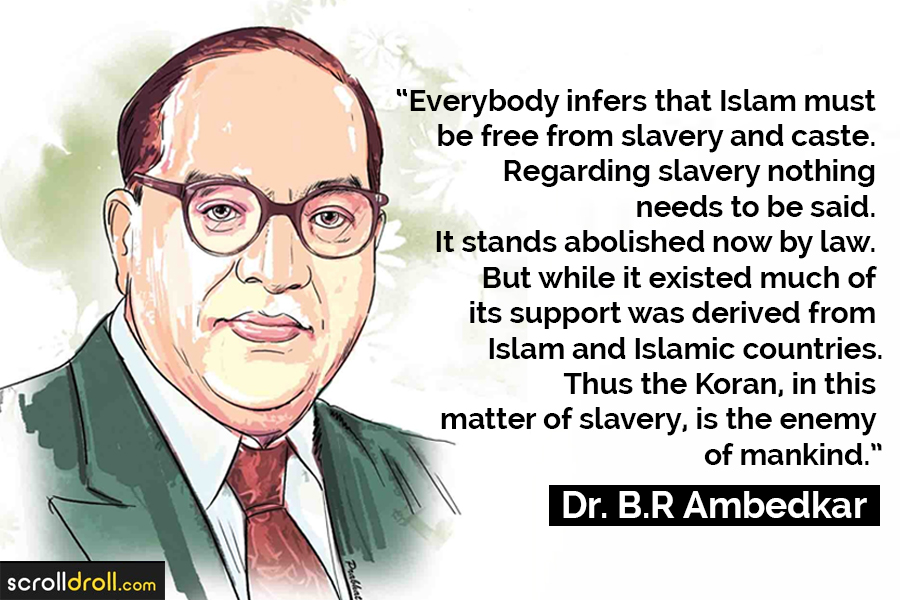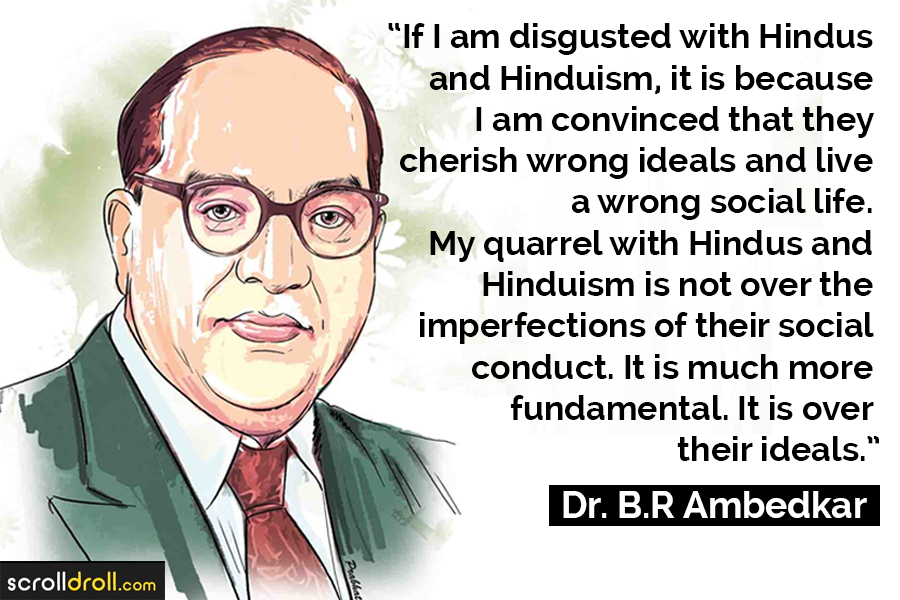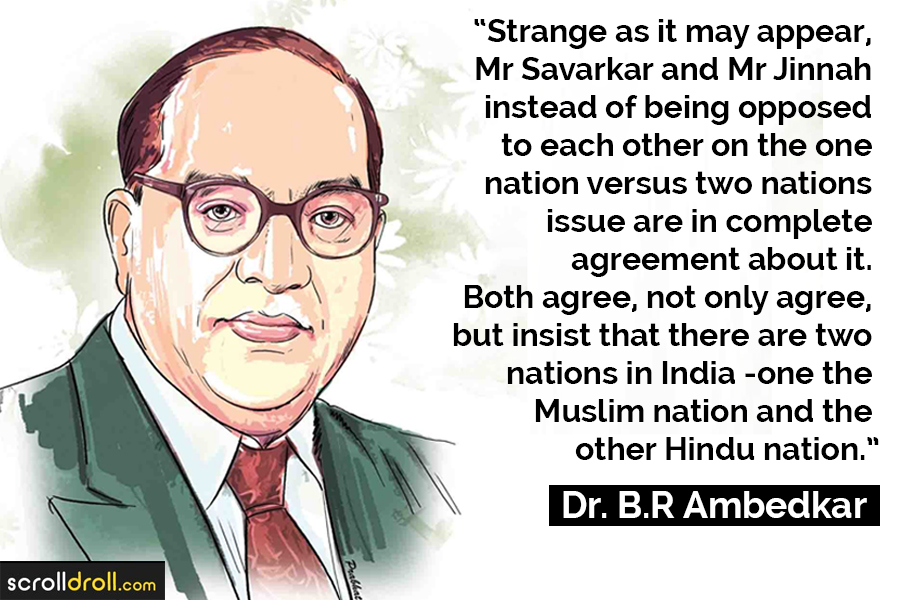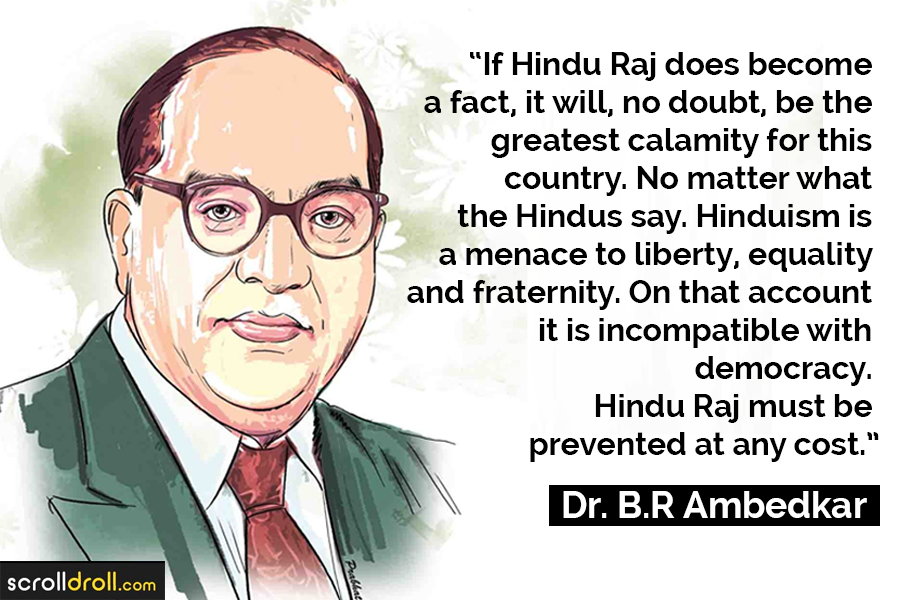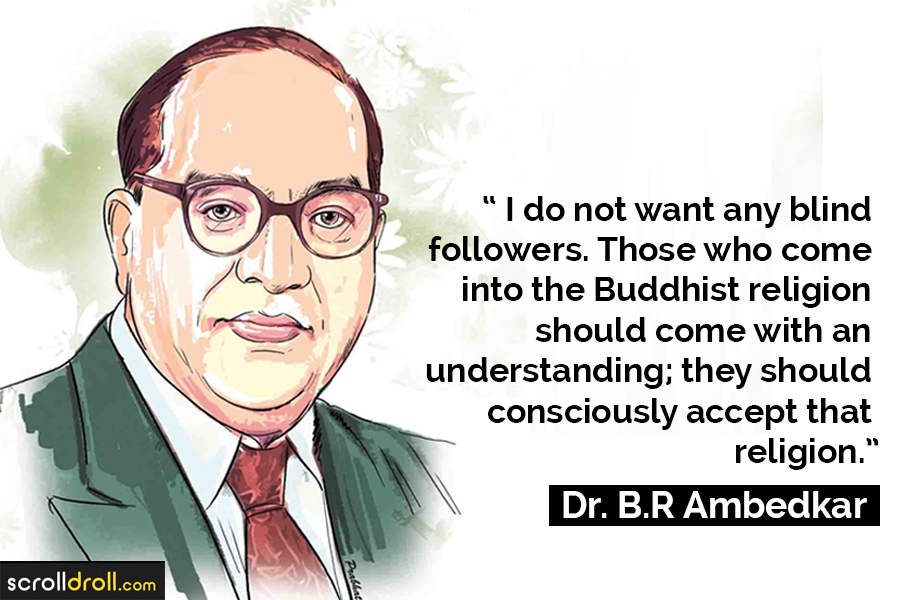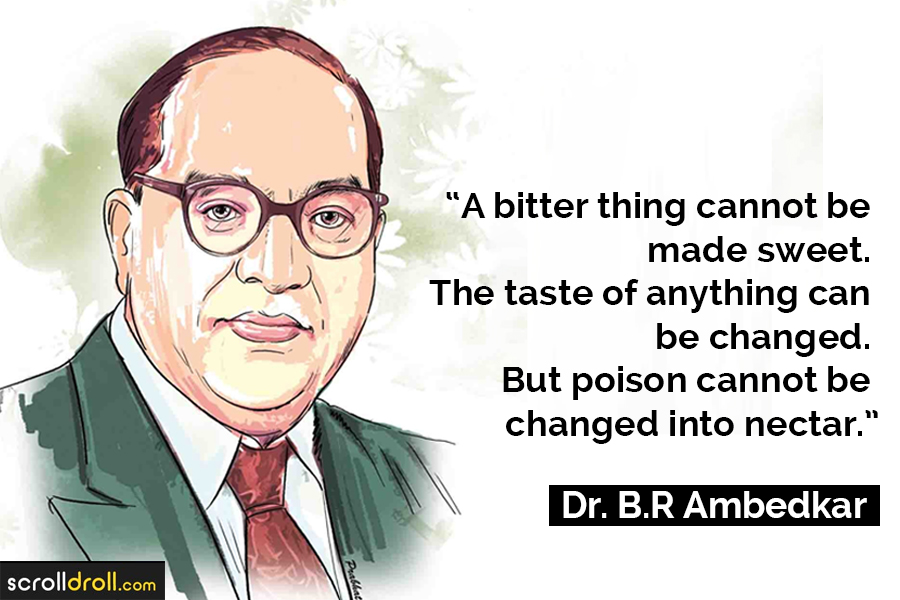35 B.R Ambedkar Quotes on Religion, Constitution & India
An eminent Indian jurist, economist, and politician, Bhimrao Ramji Ambedkar, or Dr. B.R Ambedkar is one of the architects of modern India and the Indian democracy. The “Father of the Constitution of India”, Dr. B.R. Ambedkar studied the constitutions of 60 countries and put an enormous amount of effort to draft the Indian Constitution, which serves as the holy book of the sovereign democratic Republic of India. His contributions as the chairman of the drafting committee of the Indian Constitution was one the key milestones in the foundation of modern India. He later served as the first law minister of India.
A man who has faced caste discrimination right from his childhood, Dr. B.R. Ambedkar emerged as a Champion of socially discriminated castes of society. He campaigned against social discrimination against the Dalits and Untouchables.
Dr. B.R Ambedkar had strong views on social development, communal harmony, the constitution he drafted, Hinduism, Islam and casteism in India. These powerful Dr. B.R Ambedkar quotes reflect his study of the social issues in India, the problems plaguing this country and how religions – both Islam and Hinduism have practices that have no place in independent India.
Dr. B.R Ambedkar on India
1. “I measure the progress of a community by the degree of progress which women have achieved.”
2. “Freedom of mind is the real freedom. A person whose mind is not free though he may not be in chains, is a slave, not a free man. One whose mind is not free, though he may not be in prison, is a prisoner and not a free man. One whose mind is not free though alive, is no better than dead. Freedom of mind is the proof of one’s existence.”
3. “The sovereignty of scriptures of all religions must come to an end if we want to have a united integrated modern India.”
4. “Bhakti in religion may be a road to the salvation of the soul. But in politics, Bhakti or hero-worship is a sure road to degradation and to eventual dictatorship.”
5. “You wish India should protect your borders, she should build roads in your area, should supply you food grains, and Kashmir should get equal status as India. But the Government of India should have only limited powers and Indian people should have no rights in Kashmir. To give consent to this proposal, would be a treacherous thing against the interests of India, and I, as the Law Minister of India, will never do it.”
Dr. Ambedkar was opposed to Article 370 and advocated for the complete integration of Jammu & Kashmir to India.
Dr. B.R. Ambedkar quotes on the Constitution
6. “If I find the constitution being misused, I shall be the first to burn it.”
7. “However good a Constitution may be, if those who are implementing it are not good, it will prove to be bad. However bad a Constitution may be, if those implementing it are good, it will prove to be good.”
Dr. B.R Ambedkar quotes on Religion
8. “Some people think that religion is not essential to society. I do not hold this view. I consider the foundation of religion to be essential to the life and practices of a society.”
9. “I like the religion that teaches liberty, equality & fraternity.”
10. “A people and their religion must be judged by social standards based on social ethics. No other standard would have any meaning if religion is held to be necessary good for the well-being of the people.”
11. “Religion is a very necessary thing for the progress of mankind. I know that a sect has appeared because of the writings of Karl Marx. According to their creed, religion means nothing at all. Religion is not important to them. They get breakfast in the morning, of bread, cream, butter, chicken legs, etc.; they get undisturbed sleep, they get to see movies and that’s all there is. This is their philosophy. I am not of that opinion.”
12. “Religion must mainly be a matter of principles only. It cannot be a matter of rules. The moment it degenerates into rules, it ceases to be a religion, as it kills responsibility which is an essence of the true religious act.”
13. “Caste is not a physical object like a wall of bricks or a line of barbed wire which prevents the Hindus from co-mingling and which has, therefore, to be pulled down. Caste is a notion; it is a state of the mind.”
14. “Caste is not just a division of labour, it is a division of labourers”
15. “What is the cause of nausea which the Hindus have against beef-eating? Were the Hindus always opposed to beef-eating? If not, why did they develop such nausea against it? Were the Untouchables given to beef-eating from the very start? Why did they not give up beef-eating when it was abandoned by the Hindus?”
Dr. B.R Ambedkar Quotes on Islam & Muslims
16. “Indeed, the Muslims have all the social evils of the Hindus and something more. That something more is the compulsory system of purdah for Muslim women. These burka women walking in the streets is one of the most hideous sights one can witness in India.”
17. “The brotherhood of Islam is not the universal brotherhood of man. It is the brotherhood of Muslims for Muslims only. There is a fraternity, but its benefit is confined to those within that corporation. For those who are outside the corporation, there is nothing but contempt and enemity.”
18. “Islamic law does not insist upon the slaughter of the cow for sacrificial purposes and no Musalman, when he goes to Haj, sacrifices the cow in Mecca or Medina. But in India, they will not be content with the sacrifice of any other animal.”
19. “Hindus have their social evils. But there is this relieving feature about them—namely, that some of them are conscious of their existence and a few of them are actively agitating for their removal. The Muslims, on the other hand, do not realize that they are evils and consequently do not agitate for their removal. Indeed, they oppose any change in their existing practices.”
20. “ As the Muslim invasions were accompanied with destruction of temples and forced conversions, with spoliation of property, with slaughter, enslavement and abasement of men, women and children, what wonder if the memory of these invasions has ever remained green, as a source of pride to the Muslims and as a source of shame to the Hindus.”
21. “ The realist must take note of the fact that while the Musalman accepts the European as his superior, he looks upon the Hindu as his inferior.”
22. “That Hinduism prohibits intermarriage between Hindus and Muslims is quite well known. This narrow-mindedness is not the vice of Hinduism only. Islam is equally narrow in its social code. It also prohibits intermarriage between Muslims and Hindus.”
23. “The second defect of Islam is that it is a system of social self-government and is incompatible with local self-government, because the allegiance of a Muslim does not rest on his domicile in the country which is his but on the faith to which he belongs.”
24. “Islam can never allow a true Muslim to adopt India as his motherland and regard a Hindu as his kith and kin. That is probably the reason why Maulana Mahomed Ali, a great Indian but a true Muslim, preferred to be buried in Jerusalem rather than in India. ”
25. “Everybody infers that Islam must be free from slavery and caste. Regarding slavery nothing needs to be said. It stands abolished now by law. But while it existed much of its support was derived from Islam and Islamic countries. Thus the Koran, in this matter of slavery, is the enemy of mankind.”
Dr. B.R Ambedkar Quotes on Hinduism & Casteism in Hindus
26. “If I am disgusted with Hindus and Hinduism, it is because I am convinced that they cherish wrong ideals and live a wrong social life. My quarrel with Hindus and Hinduism is not over the imperfections of their social conduct. It is much more fundamental. It is over their ideals.”
27. “So long as the Muslims were the aggressors, the Hindus were passive, and in the conflict they suffered more than the Muslims did. But this is no longer true. The Hindus have learned to retaliate and no longer feel any compunction in knifing a Musalman. This spirit of retaliation bids fair to produce the ugly spectacle of gangsterism against gangsterism.”
28. “The Hindu Maha Sabha plan is no way to unity. On the contrary, it is a sure block to progress. The slogan of the Hindu Maha Sabha President -Hindustan for Hindus -is not merely arrogant but is arrant nonsense.”
29. “Strange as it may appear, Mr. Savarkar and Mr. Jinnah instead of being opposed to each other on the one nation versus two nations issue are in complete agreement about it. Both agree, not only agree but insist that there are two nations in India -one the Muslim nation and the other Hindu nation.”
30. “If Hindu Raj does become a fact, it will, no doubt, be the greatest calamity for this country. No matter what the Hindus say. Hinduism is a menace to liberty, equality and fraternity. On that account, it is incompatible with democracy. Hindu Raj must be prevented at any cost.”
31. “The communal problem exists not because the Muslims are extravagant and insolent in their demands and the Hindus are mean and grudging in their concessions. It exists and will exist wherever a hostile majority is brought face to face against a hostile minority. Controversies.”
32. “I have no hesitation in saying that if the Mohammedan has been cruel, the Hindu has been mean; and meanness is worse than cruelty.”
Dr. B.R Ambedkar Quotes on his conversion to Buddhism
33. “I solemnly assure you that I will not die as a Hindu.”
34. “ I do not want any blind followers. Those who come into the Buddhist religion should come with an understanding; they should consciously accept that religion.”
35. “A bitter thing cannot be made sweet. The taste of anything can be changed. But poison cannot be changed into nectar.”
Dr. Ambedkar is his response to Mahatma Gandhi’s efforts to reclaim Dalits back into Hinduism.
A lot of Dr. B.R. Ambedkar quotes may have caused huge controversies in recent times, especially because of his strong criticism of both Hinduism and Islam. However, this has to be viewed in the context that Ambedkar was a truly secular and champion of social equality who viewed a religion by the way it was practiced in his times and how it affected society as a whole. He had strong disagreements with some of the practices of Hinduism, especially the caste system and was also critical of Islam for the social evils prevalent amongst Muslims. His words and writings over the air has advocated the creation of a modern Indian where religion is like the guiding light and not a set of rules people need to adhere to at all costs.


